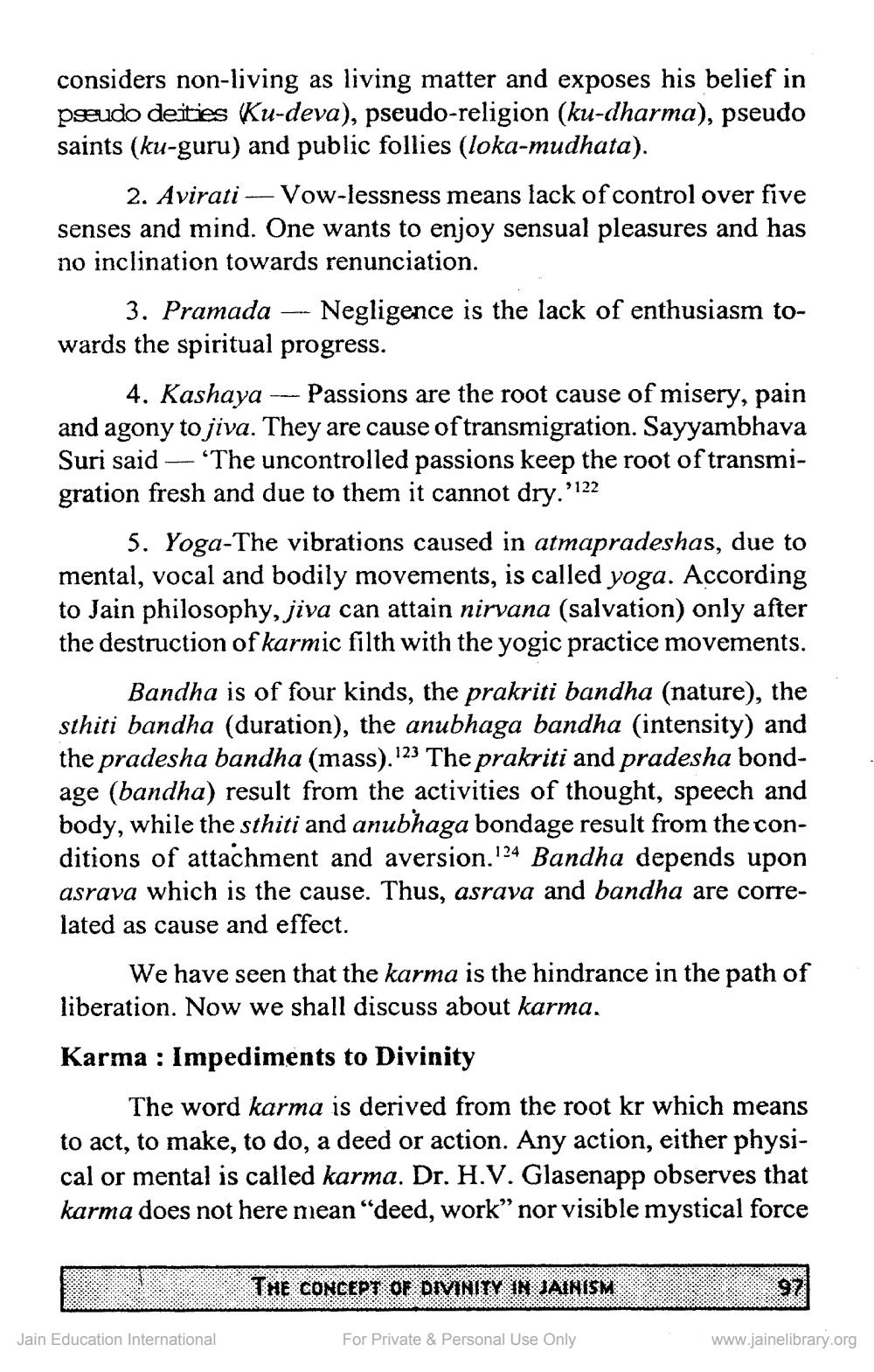________________
considers non-living as living matter and exposes his belief in pseudo deities (Ku-deva), pseudo-religion (ku-dharma), pseudo saints (ku-guru) and public follies (loka-mudhata).
2. Avirati - Vow-lessness means lack of control over five senses and mind. One wants to enjoy sensual pleasures and has no inclination towards renunciation.
3. Pramada Negligence is the lack of enthusiasm towards the spiritual progress.
4. Kashaya - Passions are the root cause of misery, pain and agony to jiva. They are cause of transmigration. Sayyambhava Suri said 'The uncontrolled passions keep the root of transmigration fresh and due to them it cannot dry."122
―――
5. Yoga-The vibrations caused in atmapradeshas, due to mental, vocal and bodily movements, is called yoga. According to Jain philosophy, jiva can attain nirvana (salvation) only after the destruction of karmic filth with the yogic practice movements.
Bandha is of four kinds, the prakriti bandha (nature), the sthiti bandha (duration), the anubhaga bandha (intensity) and the pradesha bandha (mass). 123 The prakriti and pradesha bondage (bandha) result from the activities of thought, speech and body, while the sthiti and anubhaga bondage result from the conditions of attachment and aversion.124 Bandha depends upon asrava which is the cause. Thus, asrava and bandha are correlated as cause and effect.
We have seen that the karma is the hindrance in the path of liberation. Now we shall discuss about karma.
Karma: Impediments to Divinity
The word karma is derived from the root kr which means to act, to make, to do, a deed or action. Any action, either physical or mental is called karma. Dr. H.V. Glasenapp observes that karma does not here mean "deed, work” nor visible mystical force
Jain Education International
THE CONCEPT OF DIVINITY IN JAINISM
For Private & Personal Use Only
97
www.jainelibrary.org




